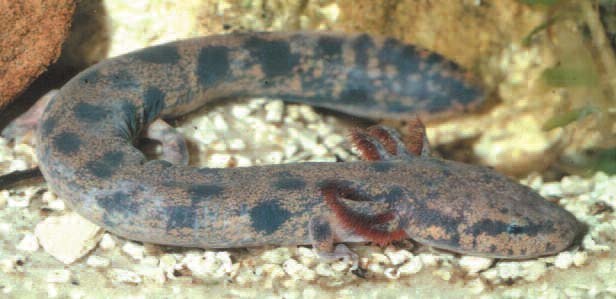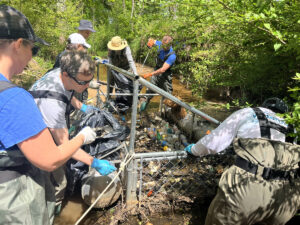News
Lawsuit aims to protect NC endangered species
Posted on April 4th, 2018
For Immediate Release, April 3, 2018
Contact: Matthew Starr, (919) 961-2240, upperneuserk@soundri
Lawsuit Aims to Speed Endangered Species Protection for North Carolina Fish, Salamander
Seven-year Delay Has Increased Extinction Risk for Carolina Madtom, Waterdog
ASHEVILLE, N.C.— The Center for Biological Diversity today sued the U.S. Fish and Wildlife Service for failing to protect two imperiled aquatic species in eastern North Carolina under the Endangered Species Act.
The lawsuit, filed in U.S. District Court for the Eastern District of North Carolina, seeks protection for the Carolina madtom, a small catfish fighting for survival, and the Neuse River waterdog, a permanently aquatic salamander, both found in the Neuse and Tar-Pamlico river basins.
“You won’t find these two North Carolina species anywhere else on Earth, and they deserve a fighting chance at survival,” said Perrin de Jong, a staff attorney at the Center. “The Carolina madtom and Neuse River waterdog desperately need Endangered Species Act protection to survive under the onslaught of development, dams and water pollution.”
The Center petitioned for protection of both species under the Act in April 2010. The Fish and Wildlife Service was required to make a decision about those protections within one year, meaning the agency’s finding is now nearly seven years late.
In 2016 the Service developed a National Listing Workplan under which the Carolina madtom and Neuse River waterdog were scheduled to receive protection decisions by the end of 2017. But the Trump administration dropped the ball on protecting the species.
“The Endangered Species Act is incredibly successful at protecting and recovering animals and plants, but it only works if species are actually listed as threatened or endangered,” said de Jong. “Protecting these two fascinating animals will help prevent their extinction and will benefit the people of North Carolina by helping to restore the state’s rivers.”
Long delays in protecting species under the Act have been a persistent problem for decades. At least 42 specieshave gone extinct waiting for protection. A recent peer-reviewed study found that on average species waited 12 years for protection during the Act’s 40-plus year history.
Related News

Tell NC to restore wetlands protections!
April 19th 2024

Position available: Stormwater Education Coordinator
April 18th 2024

Southern Nash next in line for stormwater projects
April 18th 2024

Xylem, Sound Rivers team up for cleanup
April 18th 2024

Sound Rivers launches new podcast
April 18th 2024

Swim Guide gearing up for a seventh season
April 11th 2024

Feedback needed for Jack’s Creek plans, projects
April 11th 2024

Pamlico-Tar Riverkeeper talks water quality
April 11th 2024

